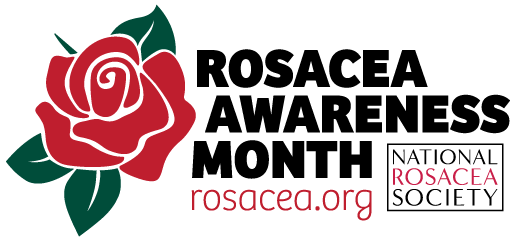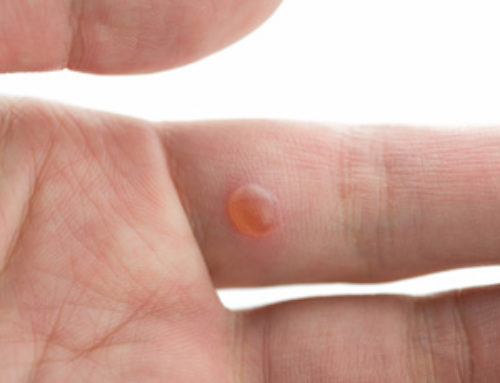April is Rosacea Awareness Month. According to the National Rosacea Society, the goal of Rosacea Awareness Month is to spread public education on this disease so that more people who may have rosacea seek medical help before it gets worse, and so those whose lives are affected can find greater public acceptance and understanding.
So, what is rosacea?
Rosacea is a chronic skin condition that can cause sensitivity, excessive flushing, persistent redness, broken capillaries and breakouts. Often times this condition is mistaken for allergies or acne. If left untreated, the condition can worsen. Symptoms often are triggered by certain behaviors, which are typically unique to the individual, so it’s important to understand the common triggers so you can treat the condition early. As reported by the National Rosacea Society, the condition affects at least 16 million Americans. While rosacea can affect everyone, people with fairer skin who tend to blush or flush easily are at a greater risk. Your genetics could be a factor as well. People with British, Celtic, Eastern European, Asian and Native American heritages are more likely to have rosacea.
There has been no conclusive determination as to the cause of rosacea. Theories suggest that increased blood flow and blood cell generation is linked to the condition, so it makes sense that temperature can be a trigger. Alcohol, spicy foods, hot beverages, saunas, and exercising can all trigger rosacea symptoms. Stress, smoking, certain medications and cosmetics, and aggressive exfoliation can also irritate the condition. The National Rosacea Society even lists 8% of people with rosacea being triggered by dairy products.
While there is no cure for rosacea, there are ways to treat and reduce the irritation and visibility. To take control of sensitive skin, it is important to calm skin and decrease redness and inflammation. Some individuals may need to seek the care of a dermatologist for prescription medications, but a comprehensive daily care regiment is still important.
Sometimes rosacea flare-ups are unavoidable, so it’s good to keep an arsenal of products handy that are calming and soothe skin. Anti-inflammatory topical ingredients that are effective in reducing the appearance of redness. Keeping your skin hydrated and protected from sun exposure is also key in controlling flare-ups. Never forget to leave the house without a broad spectrum SPF!
For more information on rosacea, please visit the National Rosacea Society’s website at: https://www.rosacea.org/










